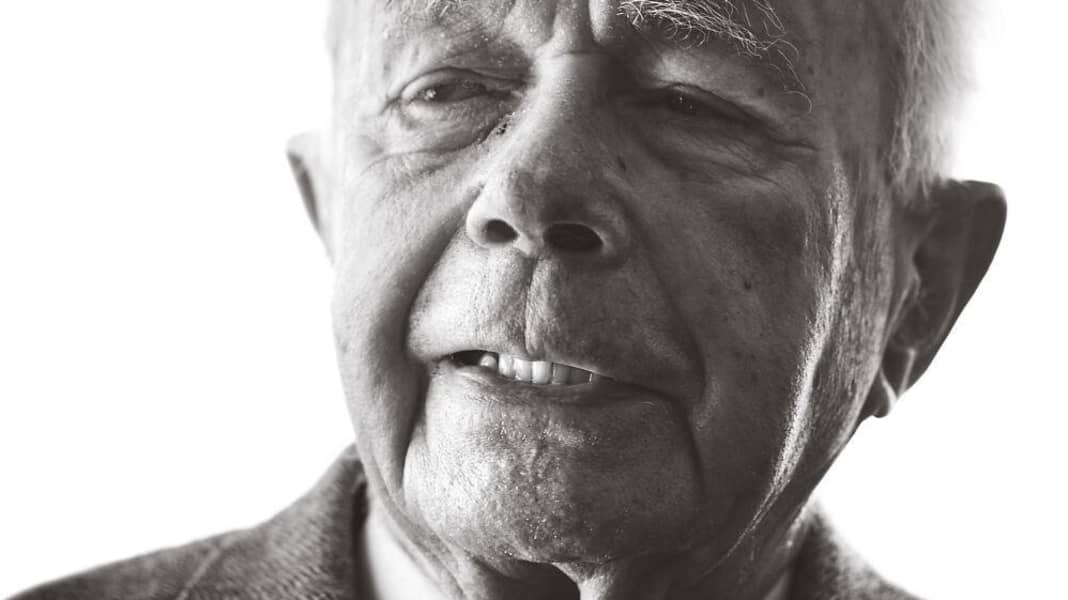
"Thank you, Ötte, farewell." With these words, the Kiel Yacht Club bids farewell to its long-standing former chairman and commodore Otto Schlenzka. He died on Wednesday night surrounded by his family.
"Despite his advanced age, he regularly took part in board meetings and events at the Kiel Yacht Club until the very end. He helped shape the Kiel Yacht Club for decades. We owe him an infinite amount," reads an obituary on the club's website. Schlenzka made his last major public appearance just a few weeks ago during the traditional regatta dinner at Kieler Woche.
Schlenzka rendered outstanding services to sailing in Germany and internationally in many ways, far beyond the Kiel Yacht Club and even beyond Kiel. The sympathy has been correspondingly great since the news of his death became public.
Honorary citizen of Kiel
Kiel's former mayor Norbert Gansel described him as an "officer and gentleman". In his case, merit and modesty were combined in a way that the city will remember with honour, Gansel was quoted as saying by the Kieler Nachrichten newspaper. Kiel's City President Hans-Werner Tovar and Lord Mayor Ulf Kämpfer said: "In Otto Schlenzka, the state capital of Kiel is losing an outstanding personality. He shaped Kiel in the field of sailing and, as a true sportsman, was always an outstanding representative of our city."
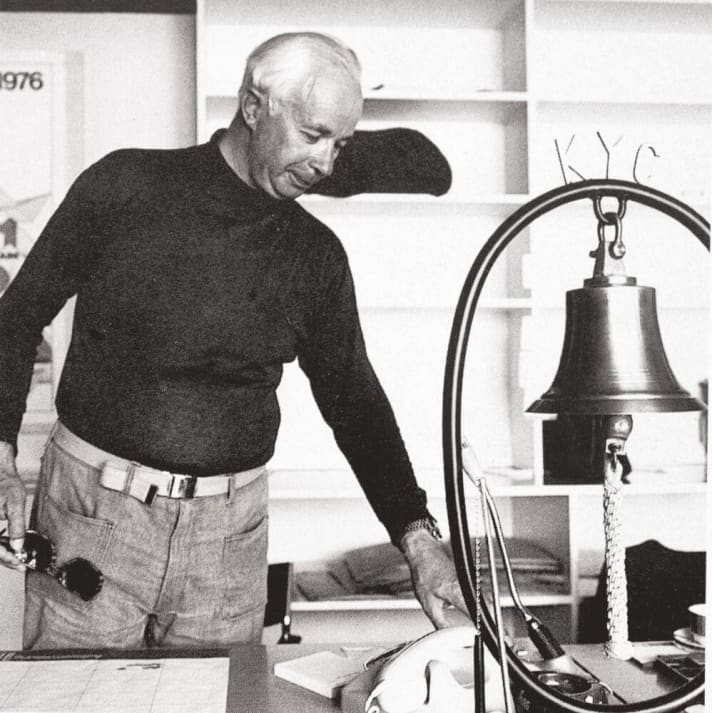
Otto Schlenzka was awarded honorary citizenship of the Schleswig-Holstein state capital in 1996. It was thanks to him that "the international Kieler Woche regattas became the largest sailing event in the world, making Kiel one of the most internationally recognised sailing areas outside of Kiel Week", it was said in the citation at the time.
Otto Schlenzka, born on 9 March 1919 in Flensburg, went to sea as an officer from 1937 to 1945 after graduating from high school. After completing his commercial apprenticeship, he worked as a sales representative until his retirement in 1982.
Long-standing starboat sailor
Schlenzka became actively involved in sailing when he joined the Imperial Yacht Club, now the Kiel Yacht Club, in 1933. He sailed regattas until the end of the 1960s, mainly in the Star boat and the 12 square metre Scharpie.
From 1958 to 1974, he was Second Chairman and Chairman of the Kiel Yacht Club until 1983. Following this term of office, he was elected Commodore for life by the members.
From 1965 to 1984 Schlenzka was head of the organisation of Kiel Week, from 1969 to 1977 he was also Vice President of the German Sailing Association (DSV) and represented its interests on the board of the World Sailing Federation from 1972 to 1990.
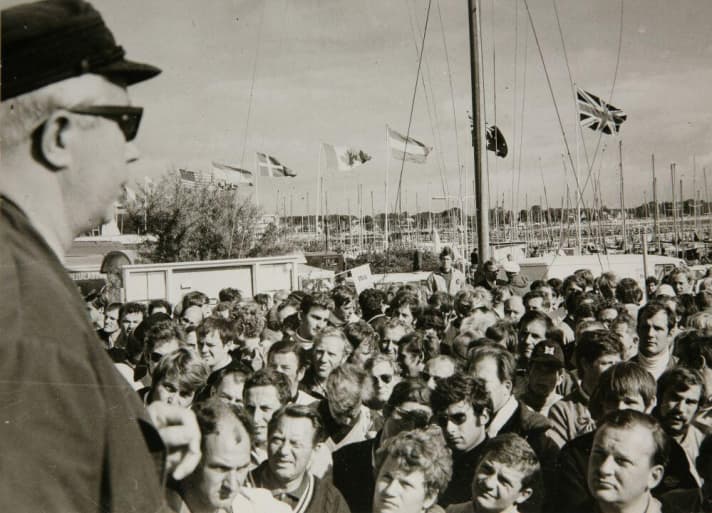
In 1972, he was also head of the Olympic sailing competitions. In 1976, he led the German sailing team at the Olympic Games in Kingston, Canada, and advised the organisers of the 1988 Games in Pusan, Korea.
Otto Schlenzka has been honoured for his achievements with the Grand Cross of Merit of the Order of Merit of the Federal Republic of Germany, among other awards. He also received the Beppe Croce Trophy, the highest honour of the World Sailing Federation. He was an honorary member of the DSV and an honorary citizen of the city of Kiel.
"Helmut Schmidt still owes me a pair of oil trousers"
In 2007, YACHT published an in-depth interview with Otto Schlenzka on the occasion of the 125th Kiel Week. For two decades, he himself played a key role in organising what is still the world's largest sailing event. What Schlenzka said eight years ago about Kiel Week and the future of the regatta harbour in Germany still holds true today:
Mr Schlenzka, you organised Kiel Week for 20 years. During this time, the number of boats increased from 230 to 1500. How did you manage that?
That was not so much my fault. The reasons lie in the development of sailing, the emergence of international classes and also in the fact that more and more boats were made of plastic. This meant larger quantities at a more favourable price.
Has another technical development contributed to the boom?
Of course. The equipment has also changed a lot and made sailing more attractive. Life jackets, for example. We used to sail with big, thick cork waistcoats. It wasn't easy to get through under the main boom when tacking. Nowadays you can hardly feel the modern waistcoats.
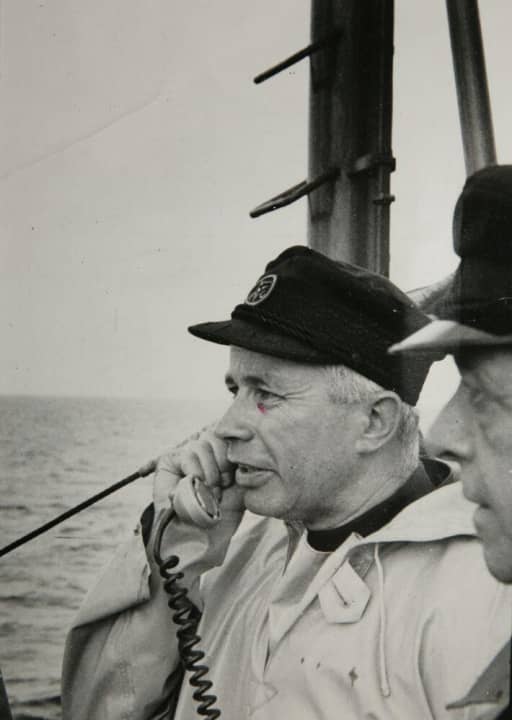
How did you actually become the head of organisation for Kiel Week? Is organising sailing regattas something of a passion?
No, I enjoyed active sailing more. My predecessor Heinz Wichmann was President of the Defence Administration and was transferred to Bonn shortly before Kiel Week. As I had been on the German Sailing Association's competition sailing committee since 1958, it was probably thought that I could take over the position. At some point, the organisational tasks piled up so much that I had to stop sailing.
In which class did you sail?
In the Starboat, for 35 years.
With success?
That was limited. I saw more sterns in front of me than bows behind me. But once, in 1951, I made it to the World Championship.
And at Kiel Week?
I competed 20 times as an active athlete. But I was never far ahead. That was partly due to me and partly due to the equipment. In total, I've taken part in Kiel Week 60 times as a sailor and organiser.
To what extent did your experience as a sailor help you with the organisation?
You need to know how to manoeuvre the boats in certain conditions so that you can decide when to start a regatta. A certain amount of experience is required to be able to judge something like this.
What other skills does a Kiel Week manager need?
He must have a little diplomatic skill. And he needs influence with the International Sailing Federation. So that there is no overlap with the World Championship, as was the case this year. But the new World Cup regulations ...
... You mean the international, high-class racing series that is to end in Kiel ...
... exactly. There will therefore be no more clashes of dates in future.
You also organised the Olympic sailing competitions. What is the first thing you remember when you think about it?
The first thing I remember is that I was flying the Japanese flag. Their team only consisted of two sailors, so I had to help out.
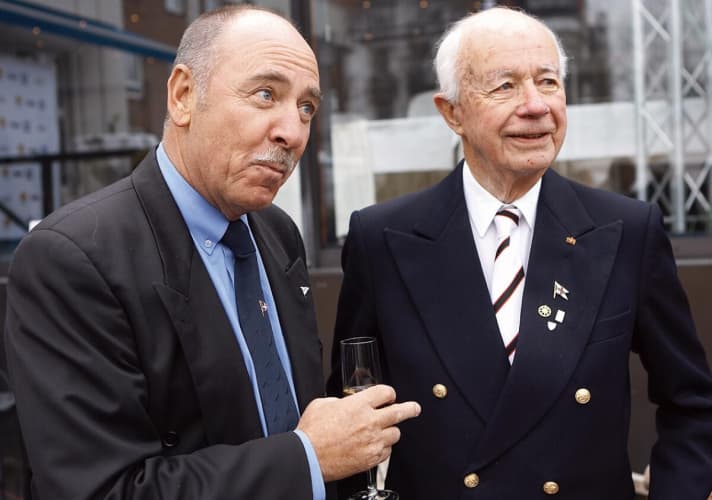
What is the difference in the organisation of Olympic sailing competitions and Kiel Week?
At the Olympics, everything has to be right, even the smallest detail. The International Olympic Committee pays close attention to that. It was certainly the most important thing I have ever been responsible for.
On the occasion of the 1972 Games, Kiel was given the Olympic Centre in Schilksee.
Yes, but unfortunately the word "concrete block" is not entirely out of place here. However, we sailors had no influence on that.
Have you ever had a mishap during Kiel Week?
Of course. We had two-way radios for the first time around 1970. Of course, we thought that this would allow us to process the results from the railways much faster. But nothing worked, because the frequencies of the radiotelephones and the tachographs were so close together that they interfered with each other. Everything went wrong for three days. We then went back to writing down the results in pencil and bringing them ashore. By 1972, however, we had the technology under control.
Where is your place in Kiel Week today?
I haven't had anything to do with the organisation for 20 years. But I am invited to many receptions and events. I always try to be there for the opening. And then I also like to go to Schilksee on the jetties and hear what the sailors who come back from the regattas are talking about.
Which class is your favourite?
The Star boats are still my favourite.
How do you like the modern boats like the 49er or the 29er?
I can see the acrobatics and stamina required to sail these boats well. It's very impressive.
Which development within Kiel Week was the most important?
We made sure that more and more classes were accepted whose boats could be righted. That wasn't always the case. I remember an earlier Travemünde Week, for example, when 38 old Pirate models capsized in a storm and drifted into the territorial waters of the GDR. Boats and crews were detained there for two days.
What don't you like about the development of the event?
I liked the times when we did without advertising at the regattas. Without sponsors, I think the skill of the individual athlete is more in demand. But this is a development that neither sailing nor other sports have been able to resist over time. Capital has found its way in.
If you could, would you separate sport and money? There are no pure amateurs at the top anywhere.
What I want no longer plays a role today. It is probably the case that an event as big as Kiel Week cannot be realised without advertising and sponsorship. You see, in the past, all helpers worked on a voluntary basis. Today you have to pay a lot of people, including students and some young people who used to help out for free.
Politicians such as former German Chancellor Helmut Schmidt and German President Horst Köhler sailed on the "Zukunft" with young people from the Kiel Yacht Club during Kiel Week. What experiences did you have with these guests?
What really impressed me about Horst Köhler was that he sent all the adults to the back of the cockpit during the trip so that they could talk to the young people on board without being disturbed.
And Helmut Schmidt?
He still owes me a pair of oil trousers.
Why is that?
He was still the Federal Minister of Defence in the early seventies when he visited Kiel Week. The weather was changeable and I lent him a pair of trousers. Two years later, I was at a reception for the British Queen and Helmut Schmidt was there too. When he spotted me, he remembered and said: "I'll give you another pair of oil trousers." I don't know if he used them much, but I never saw them again.
What do you wish Kiel Week for its anniversary?
That she remains the number 1 in world sailing.
The interview was conducted by Mathias Müller

